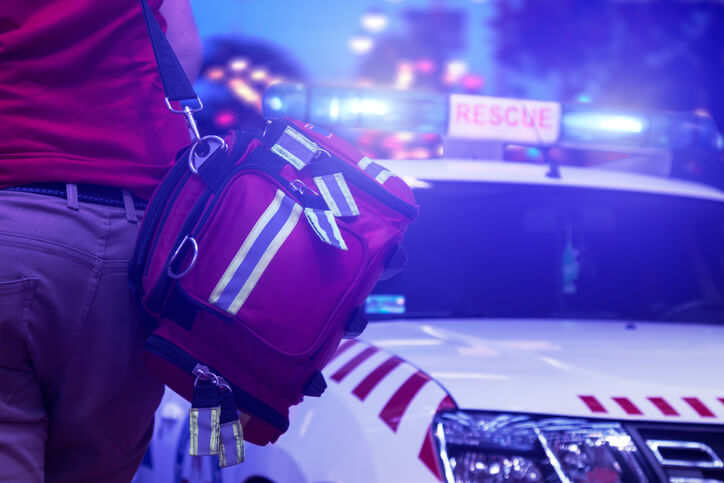
Reflections on Las Vegas
[cs_content][cs_section bg_color=”hsl(0, 0%, 100%)” parallax=”false” separator_top_type=”none” separator_top_height=”50px” separator_top_angle_point=”50″ separator_bottom_type=”none” separator_bottom_height=”50px” separator_bottom_angle_point=”50″ style=”margin: 0px;padding: 45px 0px;”][cs_row inner_container=”true” marginless_columns=”false” style=”margin: 0px auto;padding: 0px;”][cs_column fade=”false” fade_animation=”in” fade_animation_offset=”45px” fade_duration=”750″ type=”2/3″ style=”padding: 0px;”][x_custom_headline level=”h1″ looks_like=”h1″ accent=”false”]Reflections on Las Vegas[/x_custom_headline][cs_text]Written by Dr. Larry
[dropcap]I[/dropcap]had a couple thoughts I wanted to contribute regarding the massacre in Las Vegas earlier this week.

First, look at the focus of most of the media—it’s on this guy. Who is he, his brother was interviewed within an hour of the event, we want to know about the guns, etc. We just naturally focus on the shockingly insane evil. The tremendous amount of pain one man has caused. This can make anyone wonder, “What is happening to the world,” as if humanity is getting worse and uglier, or the world is coming to an end.
But there’s another story, another focus. One bad apple, and a whole orchard of people of good will. Heroes who helped people in the middle of the event, doctors and nurses in 30+ operating rooms ready to treat and save the lives of the survivors, an a compassionate, heartfelt nation and world sending out heart and prayers for healing. We can focus on the bad guy, and the guns and the loss. But therein, we can also see how overwhelmingly most of us are good people who believe in exactly the opposite—love. In humanity’s worst, we can see humanity’s best. And it’s over 99% of us that are a part of the latter.
The classic problem of evil. I came upon it in college as a counterargument to the existence of God, with so much bad in the world. There is and always will be bad. Challenges. Hurricanes and shootings. Death and loss. Things that make us individually and collectively ask ourselves, “Is the world a good place?” The virtue called upon here, that our leaders need to clearly articulate—is faith. Trust that life, even in the midst of the worst of humanity—from Hitler to this last maniac—life is always worth living, and fundamentally good. Faith.
Not to say this isn’t incredibly sad. Seeing the faces of those lost, young people, off duty police officers, and their grieving families—that’s real pain and loss. Grief. I feel for them, it touches my own loss of my mother over a decade ago.
Something that may make some people feel better is that after Sept 11, 2001, most hospitals instituted mass casualty plans, so that in the case that something like this happens, we are as ready as we can be to handle the situation. Now I’ve never been in a mass casualty scenario, and by the time I went to Haiti, it was weeks after the earthquake. But in the ER we deal with death, dying and trauma on a daily basis. This may sound cold, but it doesn’t phase us. It’s our job and what we do. Just like there are therapists who treat people with PTSD (Post Traumatic Stress Disorder) all the time, like those who may be dealing with anxiety or trauma after the event. And I’ve seen hundreds of people suicidal. All of these problems have been treated before, and we will take care of them again.
That said, this stuff is scary. And I want to talk about one thing you can do if these images have freaked you out.
As an ER doctor, I see a ton of anxiety to begin with. Generalized anxiety, panic, depression, suicide. Apart from the survivors of the actual shooting, all of whom I would recommend therapy targeted at trauma, and to prevent PTSD (Post Traumatic Stress Disorder—a type of anxiety that results from being in a situation where you almost die or witness someone dying)—I think about the average person who may just be freaked out thinking about going to their next concert or Vegas. I’m even a little bit hesitant regarding my next concert or big sporting event, as irrational as that may be.
Let’s breakdown how that fear might take hold, so we can know how to prevent it. With these images and videos running 24/7 on tv and media in the last week, it can be very easily to identify with those at the concert, or imagine yourself actually being in the middle of the shooting. Don’t do that. The more you associate into the event, where you see it through your eyes as if you are actually there, the more real, and therefore traumatic, it may potentially be. Instead, and this can be a helpful way to deal with other trauma as well, dissociate from it. Make the visuals smaller, black and white, frozen. And notice how playing with those images affects how you feel about the event.
I worry that all the news coverage, while clearly newsworthy, can unintentionally amplify the irrational fear that can affect those of us not even there. Think about it. What are you chances of being hit by lightning? Around 1 in 1,000,000 or so. Are you afraid of that? Probably not. Your chances of being killed in a terrorist attack or massacre are even lower. What is something that is much more likely to kill you? Texting a driving. And how afraid of that are you? Probably not much, as we go about our lives comfortably driving.
My point—be conscious of associating into the images, especially if it provokes anxiety, and don’t be afraid to turn off the news altogether.
In closing, keep an eye not only on yourself and how this may be affecting you, even in small ways, but also on those in your life–friends, family. I would look for changes in behavior, withdrawal, anxiety. Talking, listening, validating feelings can always help. Therapists and mental health/crisis hotlines are there if someone needs a professional, or the next level of help.
Focus on the good. Have faith. Be conscious of how these images are affecting you. And keep an eye on your loved ones. This too shall come to pass.[/cs_text][x_gap size=”50px”][/cs_column][cs_column fade=”false” fade_animation=”in” fade_animation_offset=”45px” fade_duration=”750″ type=”1/3″ style=”padding: 0px;”][x_widget_area sidebar=”sidebar-main” ][x_widget_area sidebar=”ups-sidebar-adoption-services” class=”man”][/cs_column][/cs_row][cs_row inner_container=”true” marginless_columns=”false” style=”margin: 0px auto;padding: 0px 0px 30px;border-style: solid;border-width: 1px;”][cs_column fade=”false” fade_animation=”in” fade_animation_offset=”45px” fade_duration=”750″ type=”1/1″ style=”padding: 0px;”][cs_text]
Featured Content
[/cs_text][/cs_column][/cs_row][/cs_section][cs_section parallax=”false” separator_top_type=”none” separator_top_height=”50px” separator_top_angle_point=”50″ separator_bottom_type=”none” separator_bottom_height=”50px” separator_bottom_angle_point=”50″ style=”margin: 0px;padding: 20px 0px 0px;”][cs_row inner_container=”true” marginless_columns=”false” style=”margin: 0px auto;padding: 0px;”][cs_column fade=”false” fade_animation=”in” fade_animation_offset=”45px” fade_duration=”750″ type=”1/1″ style=”padding: 0px;”][ess_grid alias=”featured_content”][/cs_column][/cs_row][/cs_section][/cs_content]

